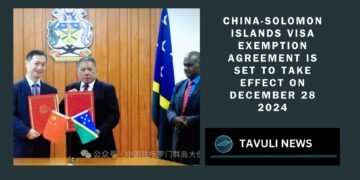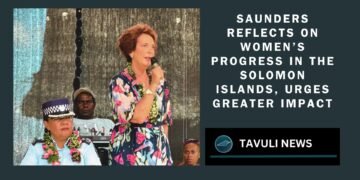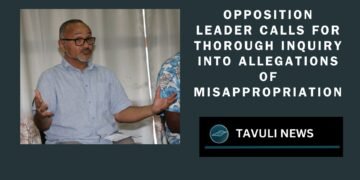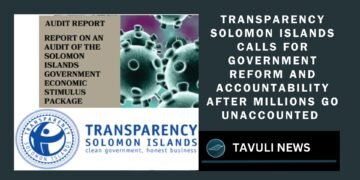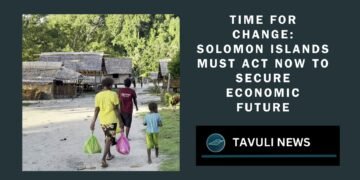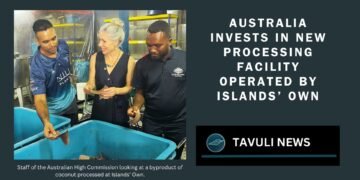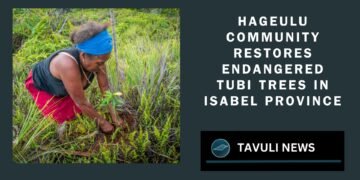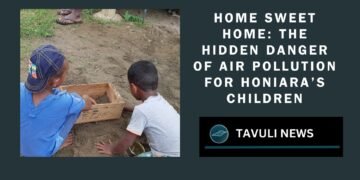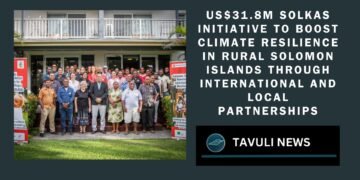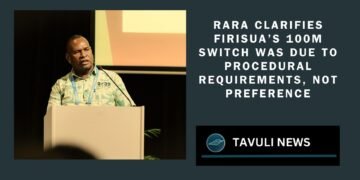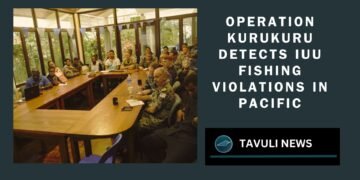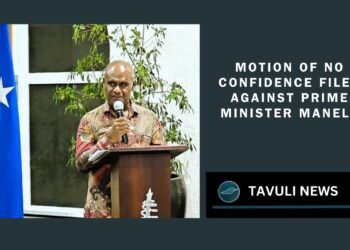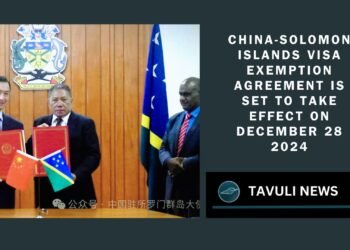Residents in North Guadalcanal emphasize need for improved mechanisms in CDF distribution as little or no impact felt in communities
By Georgina Kekea, Jeremy Gwao and Irwin Angiki
Residents of North Guadalcanal are expressing concerns regarding the ineffectiveness and inequitable distribution of Constituency Development Funds (CDF) within their communities. In a survey, engaging 60 villagers from various communities spanning from Sali to Foxwood (Tutuva), it was found that a vast majority of the surveyed population remain skeptical about the impact of CDF in their communities.
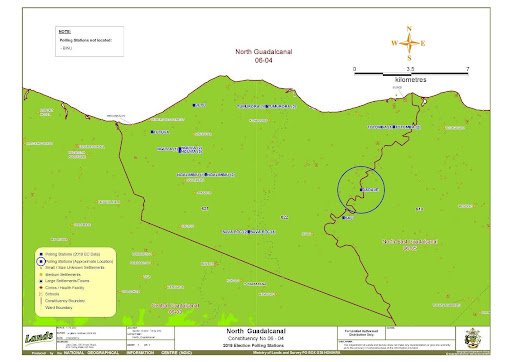
70 percent or 42 out of the 60 respondents indicated that they or their communities had not benefited from the Constituency Development Fund (CDF) payments facilitated by their Member of Parliament (MP) during the last parliamentary term. The reasons for this lack of benefit varied, with some citing a lack of awareness about accessing funds, while others voiced suspicions of favoritism in fund distribution.
Among the 60 respondents, 33 expressed concerns about the fairness and transparency of fund distribution, emphasizing the need for improved accountability mechanisms. These concerns highlighted issues such as mismanagement, incomplete projects and the perceived lack of impact. Respondents stressed the importance of implementing proper monitoring, evaluation and oversight mechanisms to ensure that funds are used efficiently and for their intended purpose.
Individual testimonies from constituents shed further light on their experiences with CDF. For instance, a 36-year-old resident from Komuvaolu expressed disappointment, stating, “The funds were supposed to support communities and families, but in reality, many of us have not received any support.” She emphasized the potential of CDF in supporting agriculture and livestock projects.
Similarly, in Matanga, a 37-year-old villager voiced concerns about the allocation process, stating, “I applied for support in fencing materials for my livestock but to date have not received any response nor support from the constituency office.” In Vutu, a 70-year-old villager expressed regret at not having applied for CDF, mentioning a desire for support in acquiring agriculture tools and equipment as a farmer, but he lacked knowledge on how to contact officers and the application process.
In Kemami, a 46-year-old resident received housing support through CDF but faced challenges in completing the project due to financial constraints. Although materials like copper and solar panels were provided, financial support was deemed insufficient.
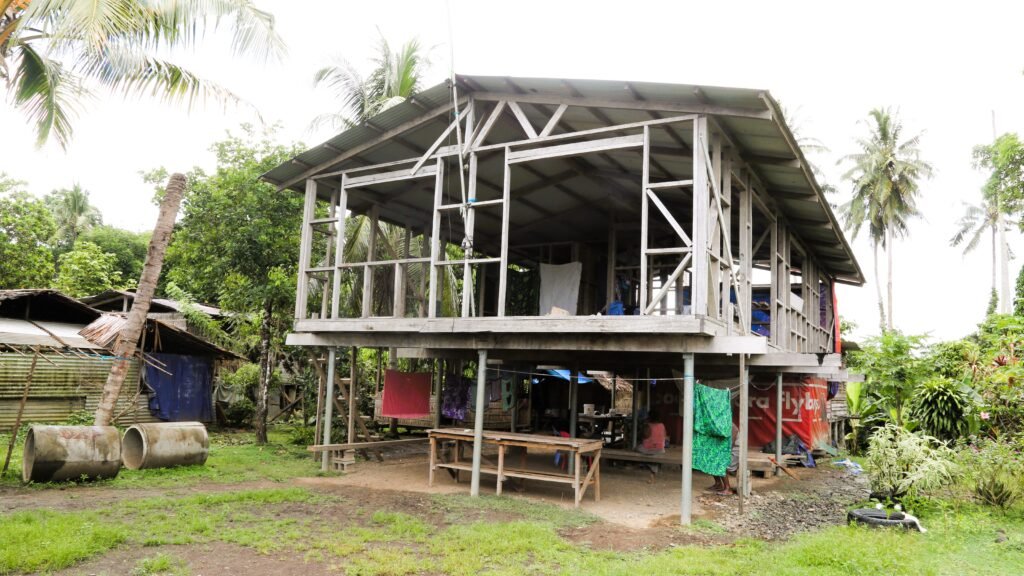
North Guadalcanal Plains
North Guadalcanal, renowned for its fertile lands and rich potential for socio-economic development, has long been the focal point for rural development initiatives. Historically, the region has played a significant role in agricultural production, making notable contributions to the economic landscape of the Solomon Islands. From rice farming to coconut and cocoa plantations to subsistence agriculture, North Guadalcanal is known for its diverse agricultural activities.
It also have significant alluvial plains, contributing to its agricultural productivity. While specific comparisons regarding the size of these plains relative to others in the southwest Pacific outside of Papua New Guinea are not readily available, they are recognized for their fertility and importance in supporting agriculture. Currently, North Guadalcanal is home to the largest palm oil company in the country, contributing 24 percent to the nation’s GDP.
Despite this historical significance and agricultural potential, some residents feel that there has been a lack of effective implementation and equal distribution of the Constituency Development Fund (CDF) within their communities. This perception has raised concerns about the equitable allocation of resources and support for agricultural projects.
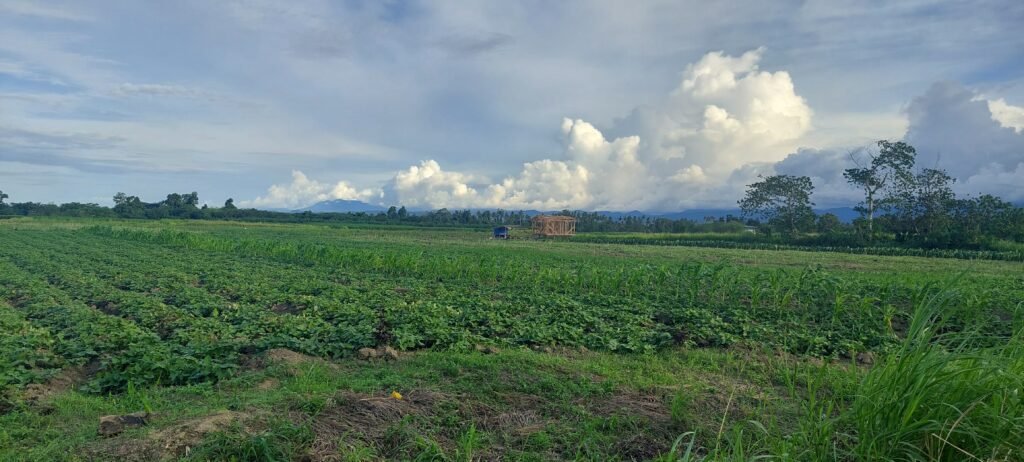
Understanding Constituency Development Funds
CDFs were designed to be a key mechanism for delivering development in rural areas in Solomon Islands. They were supposed to address the specific needs of constituents and foster community-driven initiatives. Funds were meant to be allocated for various development purposes, including income-generating projects, community initiatives and infrastructure development. The CDF, initially established in 1989 alongside the Solomon Islands Communities and Provincial Special Assistance Fund (SICOPSA), aimed to assist MPs in addressing urgent and often emergency needs of their constituents.
Though SICOPSA was discontinued after its initial two years, it evolved into what is now known as CDFs. The original intent was to decentralize development resources and empower Members of Parliament (MPs) to address the specific needs and priorities of their constituencies. Since then, CDF has consumed a significant portion of the country’s annual development budget claiming to promote local development, improve infrastructure and enhance the overall quality of life in communities across the country.
Survey Findings
The survey conducted by Tavuli News revealed mixed sentiments among constituents regarding the impact of the Constituency Development Fund (CDF) in North Guadalcanal. Based on the survey findings, access to water emerges as one of the most pressing needs for the people in the constituency. Several respondents across different demographics and villages highlighted the importance of water access and expressed the need for support in addressing this issue.
For instance, in Kemami, one respondent highlighted access to clean water as a major concern for her community. “The river is just within walking distance from us, but it is always muddy and contaminated by mining activities upstream. We used to bathe in the river, but since mining began upstream, it has become polluted, sometimes causing itchiness to our skin. I don’t know what sort of chemicals they have thrown in the river that caused it to become like this. These are also some of the issues we feel our MP should address regarding our resources,” the 46-year-old mother said.
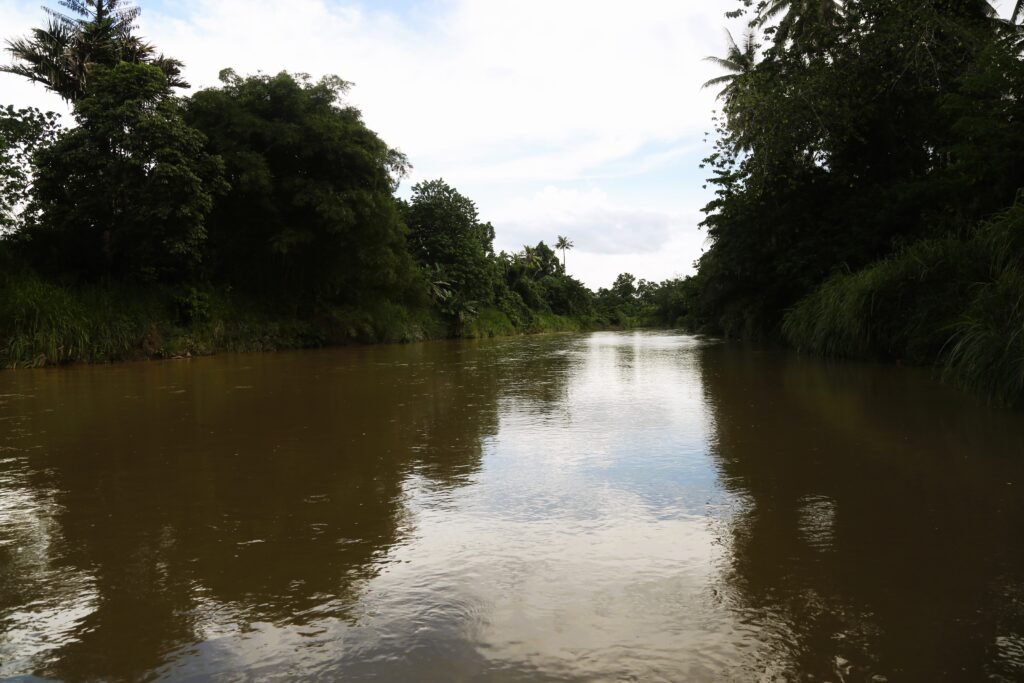
Additionally, respondents from various villages, including Gorou, Foxwood and Ghorabau, emphasized the importance of clean water supply and sanitation as essential needs for their communities. In the Foxwood area, also known as Tutuva, just 23 km from Honiara, residents still fetch water from water wells or standpipes built more than 20 years ago. “I don’t have a water tank, so I usually walk long distances to fetch water for cooking and drinking from the standpipes,” says 40-year-old Francina. “We are not far from Honiara city, yet we still fetch water from water wells and walk long distances to get clean drinking water,” she added.
Solomon Water used to be the main supplier of water to those residing in the Foxwood area. Their water pump and reservoir tank were destroyed during the ethnic crisis of the early 2000s. Since then, residents have reverted back to using water wells, tanks and standpipes from boreholes as their main source of water supply.
MRD Response
In response to the survey findings, Samson Viulu, Permanent Secretary in the Ministry of Rural Development, acknowledged the concerns raised by constituents and emphasized the government’s commitment to addressing them. He stated, “Each constituency, including North Guadalcanal, is allocated 6.8 million annually under the CDF through the Ministry of Rural Development”, Viulu said. This allocation comprises 4.8 million for project materials through a preferred supplier system, where specific vendors or suppliers are selected based on criteria such as reliability, quality and cost-effectiveness. Additionally, 2 million of the 6.8 million is provided as a cash grant to MPs every year to support development projects within their constituencies, targeting infrastructure, social and economic needs in rural areas.
“With such substantial funding at their disposal, there is no excuse for the North Guadalcanal Constituency not to meet the aims and objectives of the CDF,” Viulu emphasized. He highlighted the close proximity of North Guadalcanal to Honiara, emphasizing that the financial resources allocated to the constituency should positively impact the lives and livelihoods of its residents. Viulu expressed disappointment at learning that constituents have not benefited as much from the CDF as expected. He said the Ministry was unable to conduct any evaluation or monitoring activities in North Guadalcanal to assess how the CDF funds have been utilized in the constituency.
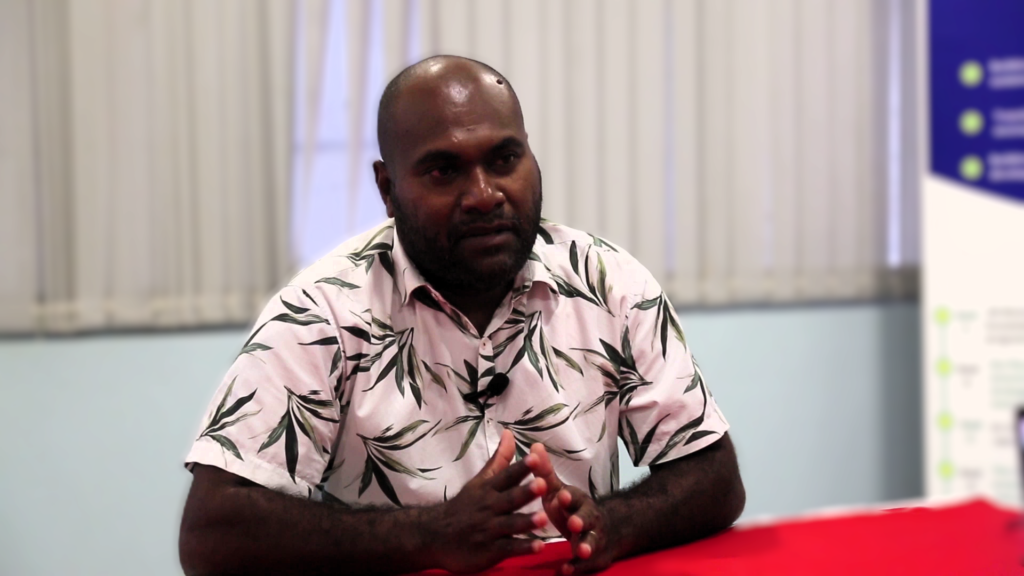
Path Forward
Residents of North Guadalcanal have voiced diverse perspectives on the effectiveness of the CDF. While some residents advocate for the CDF to be administered directly by the government rather than through Members of Parliament (MPs), citing concerns about fair distribution and transparency, others highlight the potential for the fund to drive community development if managed properly.
Key points raised by residents include the need for thorough planning and equitable allocation of resources to support various sectors such as agriculture, education and infrastructure. Many express disappointment in the perceived lack of impact from the CDF and call for greater accountability in its management.
There are concerns about the exclusion of certain groups, such as churches, from receiving support despite expectations. Additionally, residents emphasize the importance of community involvement in decision-making processes related to the allocation of the CDF and stress the need for proper monitoring to prevent corruption and ensure funds are used effectively.
Overall, residents express a desire for the CDF to fulfill its intended purpose of fostering development within the constituency, particularly through initiatives that address the needs of vulnerable populations and promote sustainable growth.
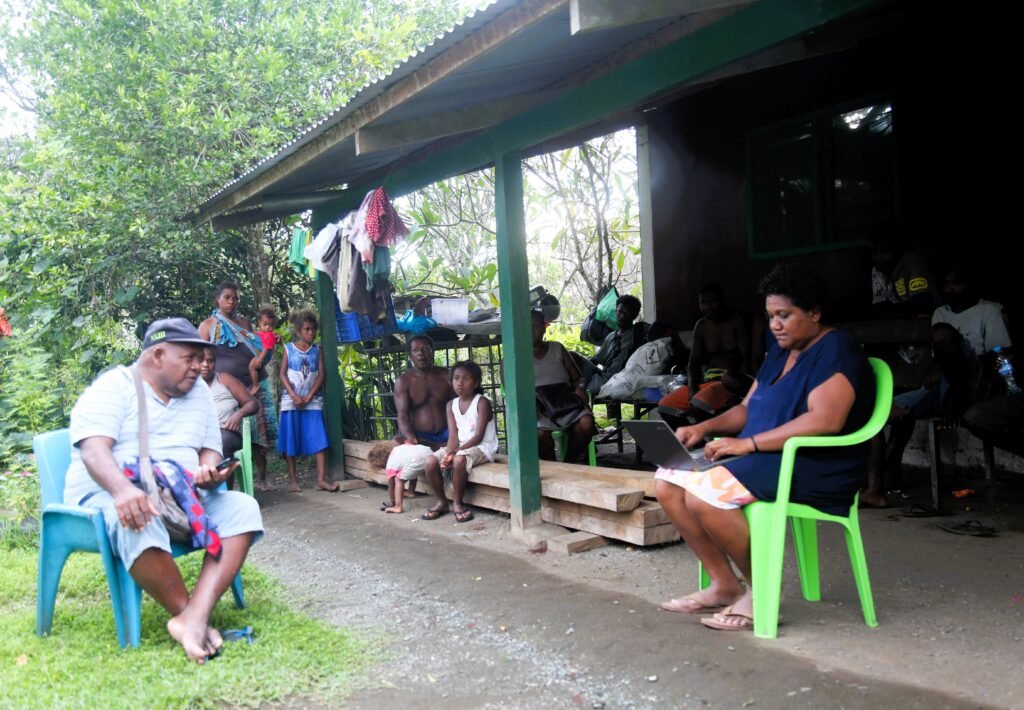
Conclusion
The passage of the CDF Act 2023 marks a significant milestone in the journey towards more effective and equitable utilization of development funds.
Compared to the previous CDF Act of 2013, the new legislation introduces significant changes, emphasizing partnerships and imposing heavier penalties. It restricts Members of Parliament to their legislative roles while enhancing oversight of the CDF program. The implementation responsibilities are delegated to public servants, constituency committees and constituents themselves.
Key provisions of the CDF Act 2023 include the establishment of constituency development committees with gender representation, eligibility criteria for constituency funding, recruitment of officers through merit-based processes and the creation of constituency development growth centers. Additionally, it mandates legally binding agreements for project recipients, transparency through annual disclosure of financial reports, adherence to procurement regulations and rigorous auditing.
The Act allocates funds strategically, prioritizing economic sectors alongside essential services, cross-sectorial initiatives and social and cultural obligations. Severe penalties will apply to all parties for non-compliance.



